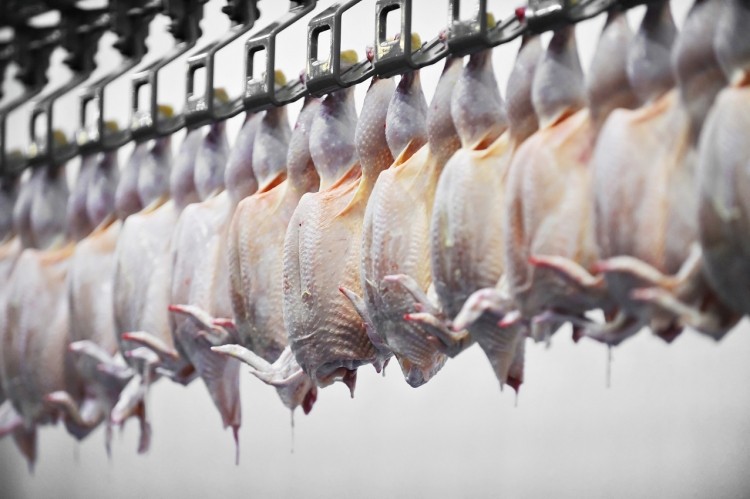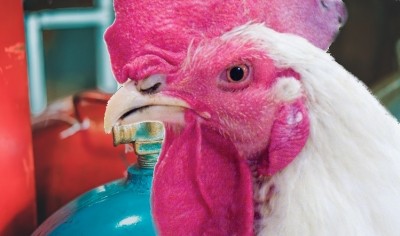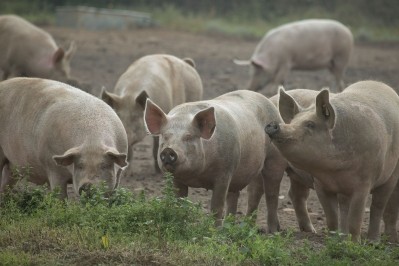NEWS ANALYSIS
CO2 shortage problems not over yet - what now?

No sooner had the mainstream media reported the food industry's concerns over supplies of food-grade CO2 running out following the discontinuation of production by two of CF Fertilisers' UK plants than they were hailing the Government's victory in rebooting production.
"We have acted decisively to ensure that CO2 supplies, which are critical to some of our food sectors, continue to be available following some exceptional events," environment secretary George Eustice said yesterday (21 September), while stressing the deal to restart operations at CF Fertilisers' Billingham facility was a short term intervention. On Radio 4's Today programme on 22 September, Eustice explained: "It's a short period of time. We're going to help the business with some of its fixed operating costs over the next three weeks and then the market will adjust." He also referred to 'another plant in Norway that's expected to come back onstream soon'.
So, job done then? Food processors using CO2 for humane stunning pigs and poultry before slaughter; modified atmosphere packaging (MAP) of products such as cheese; carbonated soft and alcoholic drinks and refrigerant in temperature controlled storage could breathe a sigh of relief couldn't they?
Availability
Not that simple, says Andrew Kuyk, director general of the Provision Trade Federation, which, among other sectors, represents cheese producers, many of which use CO2 as a gas in modified atmosphere packaging (MAP) to extend product shelf life particularly for exports. For starters, availability will not magically return to full levels immediately. "I've seen three days quoted for the time it would take them to get back up and running."
CF Fertiliser has been described as producing 60% of the industry's CO2 supplies. What about the other 40%? And as the Government acknowledged, only one of its plants is restarting initially, with the facility at Ince to follow, although it's unclear when.
Kuyk says: "We have all seen the figure that the two plants between them count for 60% of supply. Is the other 40% still available from somewhere or not? And if they are only opening one of the plants, is that half of the 60%?" In addition, different food and drink manufacturers will have different levels of CO2 stocks, with some already having to cut back because of low stocks.
In a 22 September statement, Gavin Partington, director general of the British Soft Drinks Association (BSDA), warned: “This is a fast-moving situation, but latest intelligence suggests that it could take up to a fortnight before production from this plant makes any positive impact on current market conditions. As a result, we expect market volatility to continue for the foreseeable future."
Gordon Poulson, chief executive of the Federation of Bakers, says: "If the solution put in place is long term, [there] should not be any problems. We were not in a desperate position before the solution was put in place. If it’s not long term, then like everybody else we would not be able to supply vacuum packed bakery if CO2 was not available." Key stock keeping units such as crumpets, buns and pitta breads would be worst hit, he adds. "All this may therefore result in some shortages but we will not run out of bread and bakery products."
Richard Griffiths, chief executive of the British Poultry Council, says availability remains a concern: "We have got to push them [CF Fertilisers] to get as much capacity back into the system as possible, which we are doing through the Government and hopefully we can get the stocks back up, get the flow going again. We could easily slip back into this problem if there's not enough supply in the system even with one of those plants going and assuming that's going to full capacity."
'Kicking the can down the road'
Then there's the fact that the Government's agreement is a short-term fix, lasting for three weeks. What then? As Richard Clothier, managing director of cheese producer Wyke Farms says: "It's the usual Government approach of kicking the can down the road."
Kuyk says: "CO2 is a byproduct, so the main thing they are manufacturing is the fertiliser. Obviously, if you could get money for the byproduct, of course you would, but it isn't the price of the byproduct that drives the manufacture of fertiliser. What drives the economics of fertiliser manufacture is the cost of your input, which is the natural gas and the sale price of your primary output, which is your fertiliser, so simply saying, 'we will cover your costs for three weeks and then leave it to the market to bid up the price of CO2', I struggle to see how the market is going to bid up the price of CO2 to the point where it makes the fertiliser manufacture, as the primary product, economical."
On top of that, according to Eustice's interview on Radio 4's Today programme, the Government's insta-deal has involved CO2 price to industry increasing 'substantially'. Partington says: “Although CO2 is a only a small percentage of total cost for most soft drinks manufacturers, BSDA members have been quoted over £1,000 per tonne for imported loads through distributors this week, which is around ten times ‘normal’ cost." How long costs will remain at that level once CF Fertiliser scales UK production back up remains to be seen.
As in other areas, the Government's 'quick and decisive action', as business secretary Kwasi Kwarteng described it has left the industry with a tonne of unanswered questions. As if it needed more uncertainty right now.
So significant concerns still remain. Blame was laid at the Government's door for failing to alert the food industry or to join the dots in terms of the knock-on effect of high gas prices on fertiliser production, perhaps unfairly - with everything else it's facing, could it really be expected to keep a watching brief on CO2 as a byproduct of fertiliser manufacture? Although feasibly some form of early warning system linked to gas prices could be introduced.
CO2 alternatives
Might some of the fault lie with the food industry itself, which remained wedded to reliance on food-grade CO2 after the 2018 shortage? Wyke Farms' Clothier says alternatives can be used as gases for MAP for shorter shelf-life domestic products. "We have got a contingency. We can use nitrogen flush for the UK stuff." He also argues that for Wyke Farms switching swiftly from using CO2 to using nitrogen gas for packaging is straightforward. "It's really easy on flow wrap machines that we use." The difficulty is food-grade CO2 still remains the best option in areas such as MAP, particularly for long shelf-life exports, because of its reputation for inhibiting microbial growth. "We get better shelf lives with CO2." It's also easier to check packaging integrity where CO2 is used, he claims.
Kuyk says: "When we had this problem in 2018, people were talking about nitrogen instead. Alternatives are available, including not using modified atmosphere packaging at all." Similarly, there are alternative gases that could be used for pig and poultry stunning, such as argon he says. "But then that's another gas, which presumably is a byproduct of another process."
Nevertheless, future plans need to be laid and sooner rather than later. Clothier suggests with some work one alternative supply route for CO2 could be anaerobic digestion (AD) plants, which generate biogas from waste processing. "You can capture CO2 off the end of an AD plant." However, he cautions: "It's quite an expensive capital cost at the moment, because we process waste in our AD plant - that's not allowed to go into food." He also stresses consumers may see the source of some of that gas as unsavoury, as waste processed could include cow faeces, for example. However, research could enable such CO2 to be converted into food grade form more easily and cheaply. "I think there's work we could do through our trade bodies and with Government to try to get this potential stream from farm AD over the line for food." It would also be a big green tick in the box in terms of creating a closed loop of supply from food production to waste and back to primary and secondary production.
Certainly, reliance on fertiliser as a source of CO2 at a time when farmers are being encouraged to shift away from particularly artificial fertiliser use on environmental grounds is a shaky strategy, he adds.
Meat processing
The British Meat Processors Association summed up the situation for the meat industry well in a statement released today (22 September): "For now, we are focused on re-establishing supplies before Friday this week which is when around 25% of pork production was in danger of shutting down. We understand that it will take around three days to get the Teesside plant back up and running which should be just in time.
"After that, we have some important work to do to discuss how these markets can be re-shaped to take the risk out of our supply chains. Part of that discussion will involve the kind of consolidation that’s taken place, not just in the CO2 market but elsewhere in the supply chain, for example the shipping container sector. We’ve had some warning shocks recently that have exposed weaknesses. We should now look to identify those weaknesses and act to fix them.
"Once this immediate crisis is averted, we will be suggesting that Government, with the help of ours and other sectors, does a comprehensive review of how our modern supply chains have evolved and where vulnerabilities have crept in. This will form the basis of future solutions so we can avoid this situation in the future."















